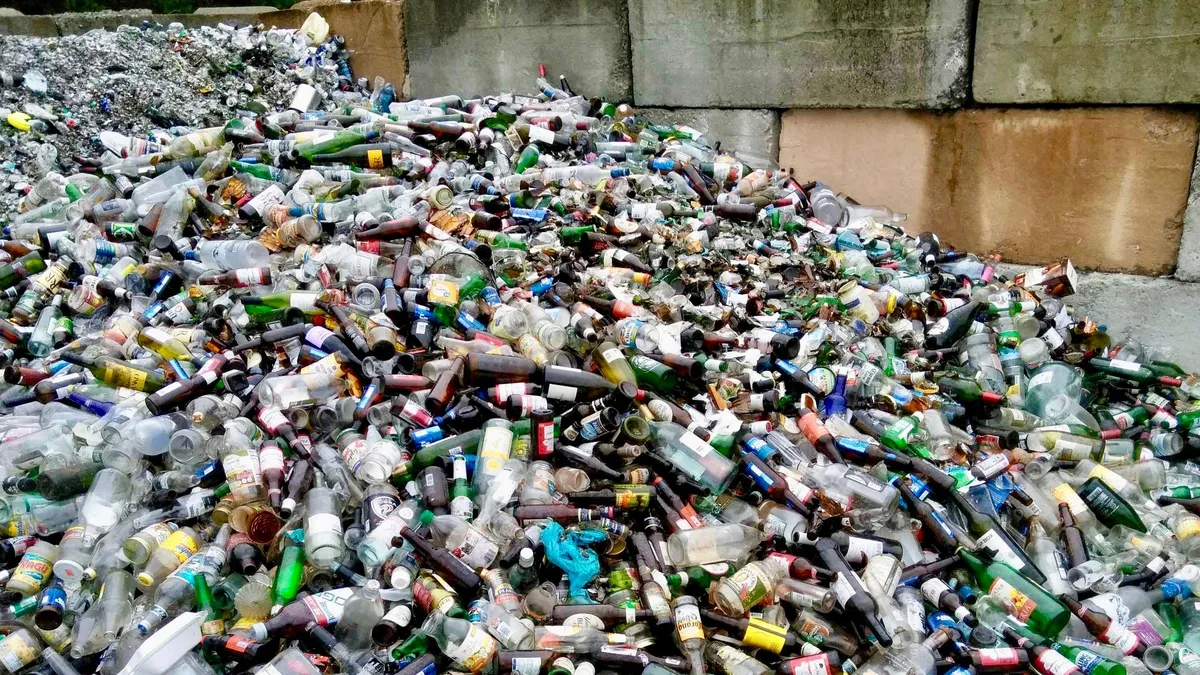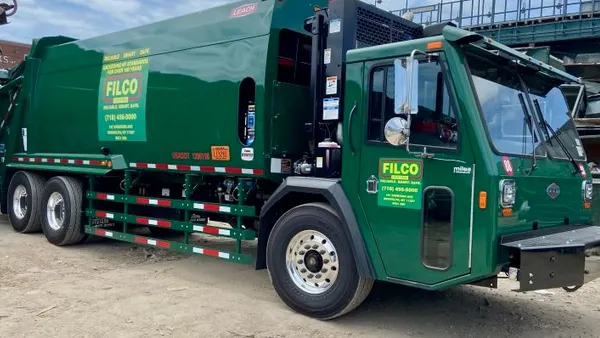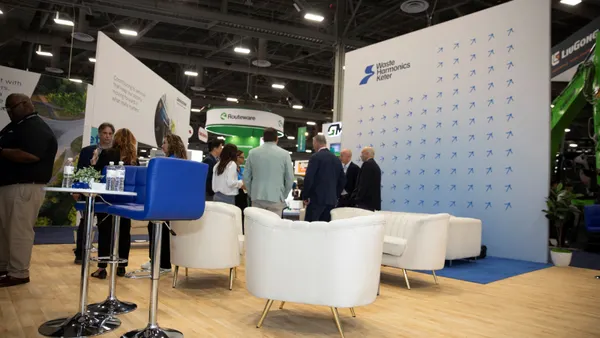Dive Brief:
- Strategic Materials and Moore County, North Carolina announced a new partnership to maintain local glass recycling access, as first reported by The Pilot. Glass was recently dropped from curbside programs in multiple municipalities.
- The company will be refurbishing a storage bunker at the county transfer station that has been defunct since a switch to single-stream recycling years ago, allowing for aggregation of material from multiple drop-off sites.
- Strategic tells Waste Dive it expects to receive 125-150 tons of material per month from residents, which will be taken at no cost to the county. All of the material will be transported about 100 miles east to a facility in Wilson for processing into container glass and fiberglass insulation.
Dive Insight:
Moore County recently moved to quadruple its recycling tip fee for local municipalities from $25 to $100, due to rising processing costs at MRFs in the state operated by Pratt Industries and Sonoco. Glass became one of the first casualties for some programs, as the state doesn't require it to be recycled and it weighs more than other materials. This new arrangement is being touted as an even better solution, however, since it will increase the amount of usable incoming material from 60% or less in a single-stream system to upward of 90%.
“We were working with the county through MRF curbside collection in the past, but the material quality was not great. With our new arrangement, since the value of the glass has increased due to lower contamination, the costs to the county/MRF were beneficial because we were able to offset their costs to $0," said Bill Clark, general manager for BevCon and supply manager for Strategic Materials, in a statement to Waste Dive. “This is a great example of public-private partnership that will provide Moore County residents and ABC permit holders the continued opportunity to recycle their glass."
The recent unrelated closure of a Strategic aggregation site in nearby Laurinburg had also threatened to cut off glass recycling options for commercial customers. BevCon, a Strategic subsidiary, traditionally collects 2-4 tons of commercial glass per day.
"The newly formed aggregation site in Moore County allows us to continue to provide the service to the area because the aggregation site can hold several truckloads of material, keeping logistics costs to our plant low and our service feasible for customers and us,” said Clark.
This hub-and-spoke model has been employed by Strategic in other areas as well, most notably to service Nashville, Tennessee's "Honky Tonk" commercial glass recycling program. The company is also set to begin accepting glass from drop-off sites in Connecticut through a state pilot in response to shrinking Northeast glass markets. Any reduction in glass collection options isn't considered ideal by processors, Strategic says it has learned to be flexible when necessary.
“Although we prefer to keep glass recycling through curbside collection, we also realize providing a myriad of glass recycling options is what is needed for MRFs and cities today. The best way to do that is through direct collaboration with us and the city/MRF, and we hope to continue to do that across the United States,” said Laura Hennemann, Strategic's vice president of marketing and communication, in a statement.
While glass has recently come under renewed scrutiny in some residential single-stream programs due to rising overall costs, these types of creative models show it still has clear value when collected efficiently and close enough to a regional end market.










